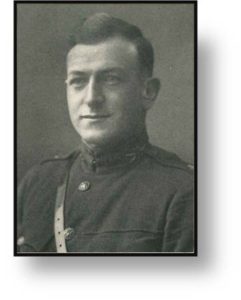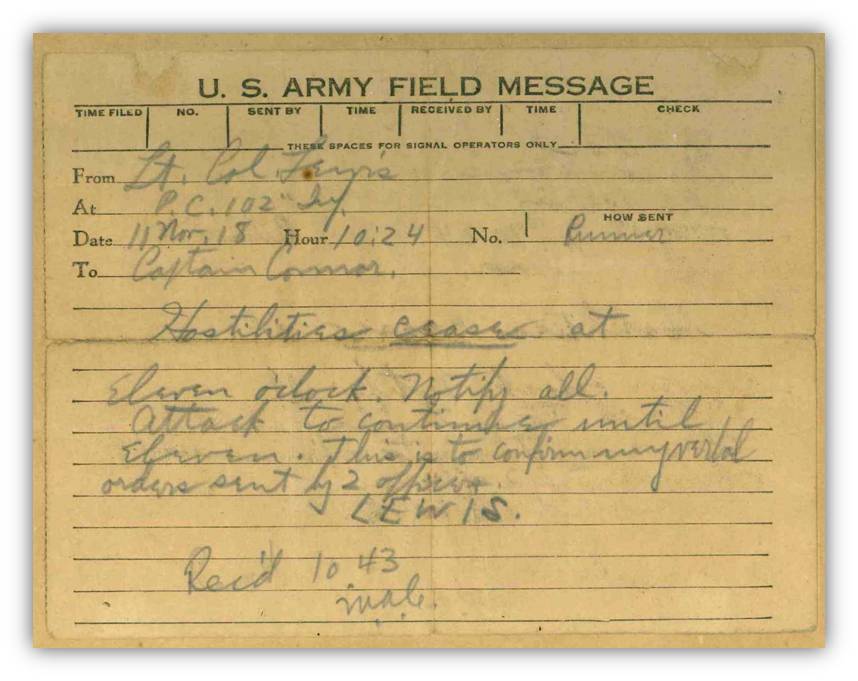Captain Michael A. Connor and “The Eleventh Hour of the Eleventh Day of the Eleventh Month”
By David J. Corrigan, Museum Curator

Captain Daniel W. Strickland, in his book Connecticut Fights: the Story of the 102nd Regiment noted that, on the night of November 10, 1918 “an unusually large amount of ammunition” was issued to all the artillery batteries supporting 102nd, which was then located east of the town of Beaumont, France. An infantry attack was planned for 9:30 on the morning of the 11th, and the extra ammunition would be expended in an “intense bombardment” of the German lines and a “rolling barrage” to cover the advancing infantrymen of the 102nd. Early on the morning of the 11th, “the batteries opened and worked to the maximum gun capacity.” But, at 9:00 “orders were received that the attack would not be made and that, at 11:00 all firing would cease from Belgium to the Swiss border because the armistice would then become effective. The artillery continued its heavy firing until the eleventh hour, when the great calm fell upon the whole area.”
At 10:43 on the morning of the 11th, Captain Michael A. Connor, a Hartford native and a Regimental Supply Officer assigned to the 102nd Infantry Regiment, received word that combat would end in 17 minutes. Connor received this momentous news via a handwritten U.S. Army Field Message, delivered by a runner, from Lt. Col. Evan E. Lewis, Commander of the 102nd Infantry. Lewis’ message, dictated at 10:24, stated: “Hostilities cease at Eleven o’clock. Notify all. Attack to continue until eleven. This is to confirm my verbal orders sent by 2 officers. LEWIS.”

Captain Connor’s reaction to receiving this news is unknown. Perhaps, as Captain Strickland remarked, Connor, like his 102nd comrades who had participated in many of the most significant battles of the war since their arrival in France, had slogged through knee-deep mud for months, and witnessed the horrors of trench warfare, was “too exhausted and too weary to display much exuberance.”
Yet Captain Connor did attach significance to Lt. Col. Lewis’ handwritten message that the war was over. He saved it, folded it and perhaps placed it for safekeeping in his uniform jacket pocket. Upon his return home in May 1919, after serving with the Army of Occupation in Germany, he had the message framed and hung it in his home in Hartford, where it served as a reminder of his role in the Great War for Civilization and of his comrades who had not survived to hear “the great calm” which followed the end of hostilities at “the eleventh hour of the eleventh day of the eleventh month” of 1918.
